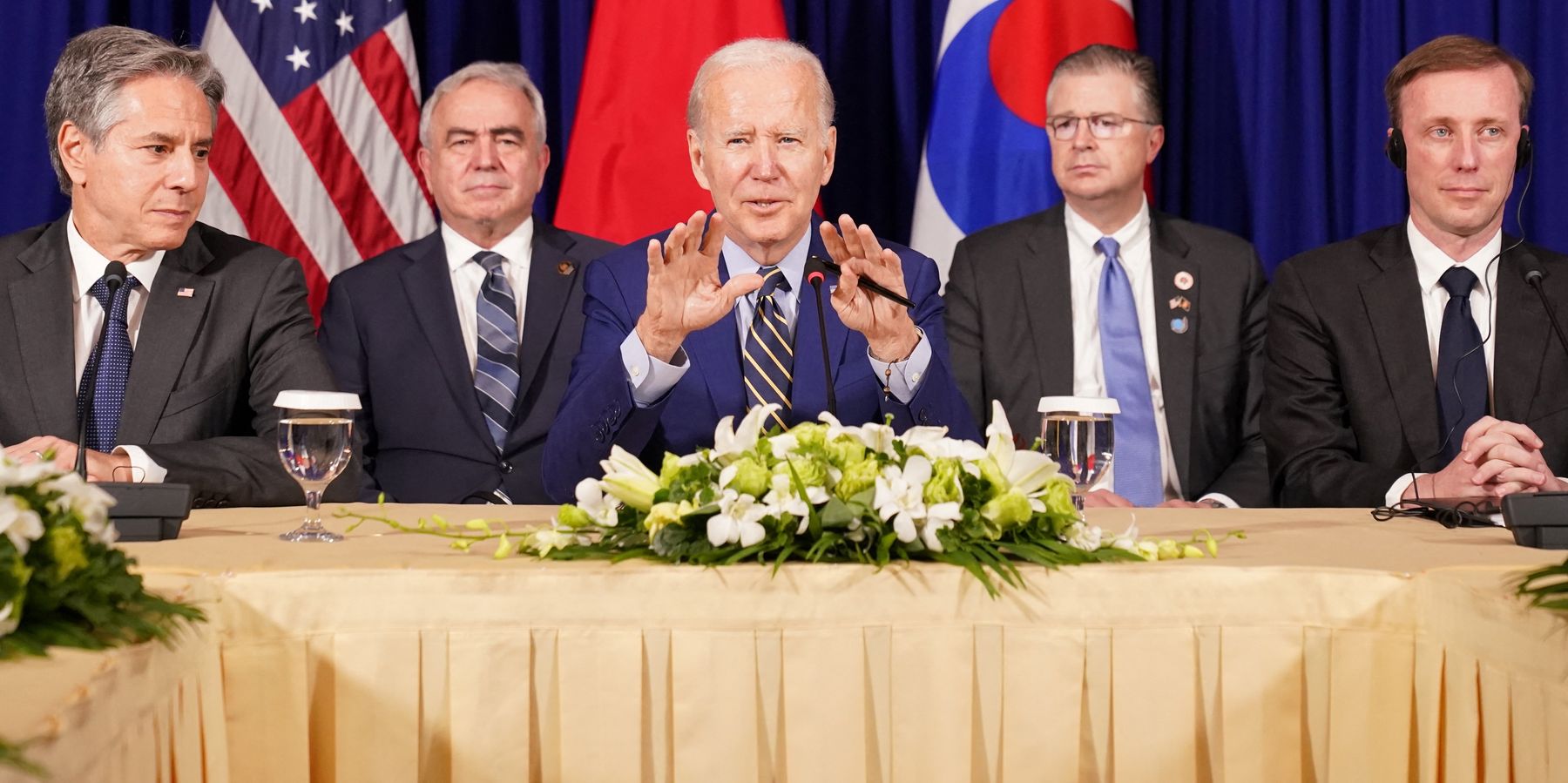On May 20, the International Criminal Court announced that it was seeking arrest warrants for Israeli Prime Minister Benjamin Netanyahu, his defense minister, and three leaders of Hamas for war crimes committed in Gaza. President Biden denounced this demand, stating that, “There is no equivalence between Israel and Hamas,” and also denied that Israel was carrying out a genocide.
This is part of a long-running pattern for Biden and his advisers.
A recently implemented policy — National Security Memorandum 20 — requires regular reports to Congress on U.S. weapons supplied to countries engaged in active armed conflict to determine whether those recipients are engaging in violations of international human rights law. This year Israel was among the seven countries requiring such reports. While the evidence is overwhelming that the Israeli military is indeed guilty of such violations, the report issued this month by the Biden administration concluded that the evidence was not sufficient to justify reducing arms sales.
Instead the U.S. is sending more weapons, as the president notified Congress on May 14 of a renewed commitment of more than $1 billion. A left-wing podcast has named Biden and three key advisers who are blocking any reduction in arms or military support to Israel: Secretary of State Antony Blinken, national security adviser Jake Sullivan, and Brett McGurk, the president’s Middle East coordinator.
They are all standing firm in resisting the pressure to reduce support for Israel, despite unprecedented criticism. Annelle Sheline, a former State Department official who resigned in protest over the administration’s handling of Gaza observed that “in general, the administration seems to view Israel's military operations in Gaza as a PR issue, rather than grappling with the significant political as well as moral questions raised by Israeli actions.” Sheline had previously worked for the Quincy Institute, which publishes Responsible Statecraft.
The wave of student protests against U.S. military support for Israel to date are similar in scale to those against the South African government in the 1980s. Encampments at Berkeley and elsewhere mirror the shantytowns built on U.S. campuses, and have sprung up in a fraction of the time.
Internal dissent has been most visible in the State Department, where three U.S. diplomats have resigned and spoken out publicly. In the Department of the Interior, Linda Greenberg Call became the first Jewish Biden political appointment to resign, accusing the president of using Jews to justify his support for the war in Gaza. Almost 200 lawyers working in U.S. government posts prepared a legal brief concluding that "supplying Israel with unconditional military aid to continue its bombardment on the Gaza Strip is not only totally disingenuous, but also severely inadequate to fulfill the U.S.’s obligations to prevent and punish genocide."
Why does Biden refuse to curb the flow of offensive weapons to Israel? Peter Baker of the New York Times does not answer this question. Instead he describes differences among the president's key advisers, including Blinken, Sullivan, and McGurk, about how to engage with Netanyahu and respond to the ongoing violence, urging symbolic acts such as a delay in shipping heavier bombs.
When asked about these alleged differences, Sheline said, “I would say that although it's quite plausible that different high level figures inside the White House have different views, in practice these divisions have yet to have any impact on policy, which seems to come directly from Biden himself.”
The Biden administration is still wedded to the hope of an Israeli grand bargain with authoritarian Gulf states. This “Abraham Accords” strategy, starting during the Trump administration with Bahrain and the United Arab Emirates in 2020, aims to ensure stability in the Middle East by setting up Israel and powerful Arab states as regional policemen, excluding the Palestinians.
This combined with the entrenched support of the donor class for Israel means that Biden and company continue to cling to the Abraham Accords. To do so, however, requires denying the realities of the war in Gaza. As four willfully blind mice, Biden, Blinken, Sullivan and McGurk continue a futile chase, with Netanyahu playing the farmer's wife in the classic nursery rhyme.
















